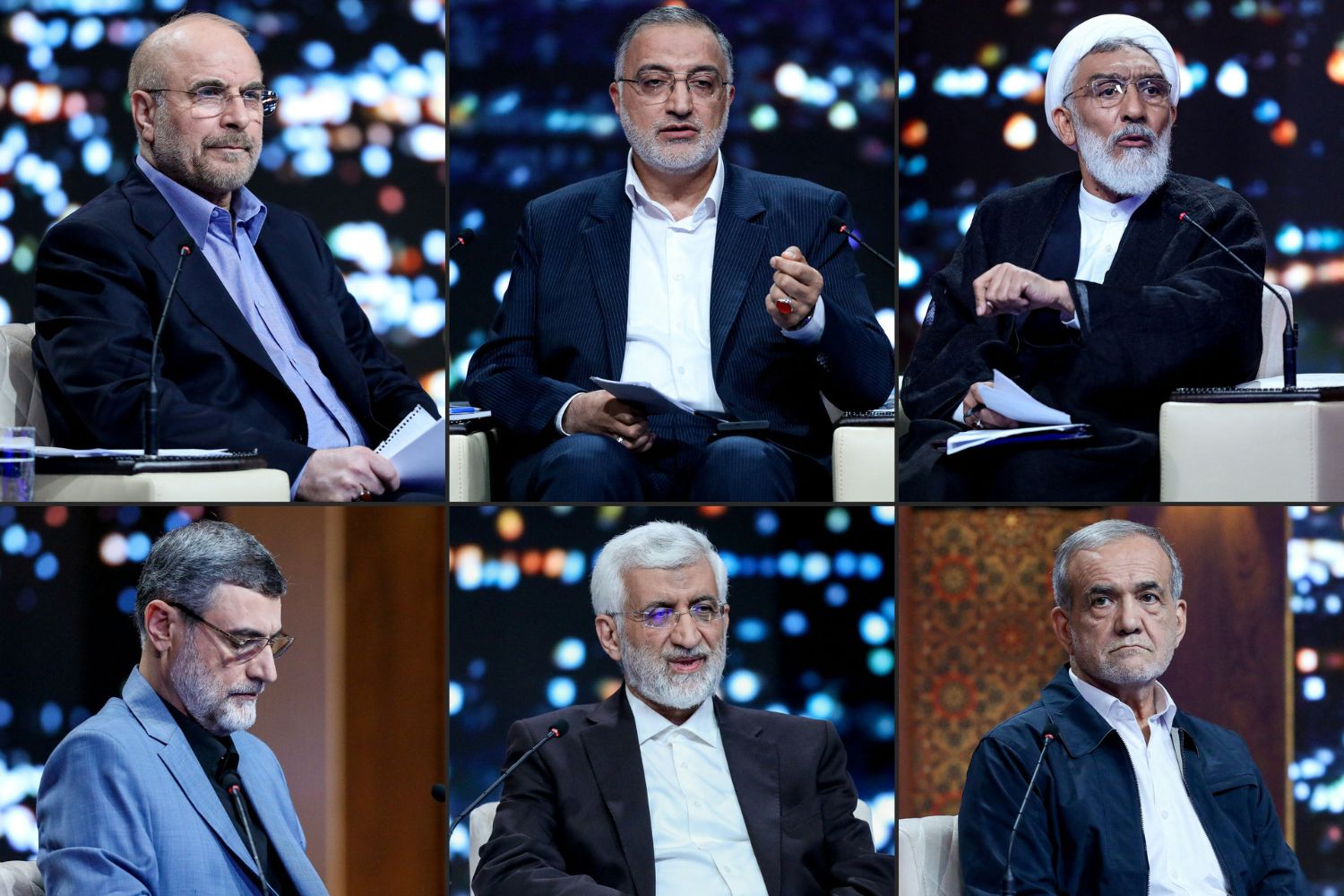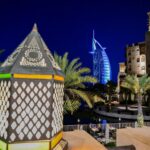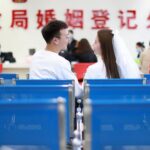The first televised debate for Iran’s upcoming June 28 presidential elections has focused primarily on economic issues, revealing the diverse perspectives and deep political divisions amongst the candidates. This debate featured intense exchanges as candidates shared their visions for tackling corruption, economic policies, inflation, Western sanctions, and Iran’s role in the global economy.
The Guardian Council approved 6 candidates to participate in the upcoming presidential elections, this decision followed the tragic death of President Ebrahim Raisi and seven others in a helicopter crash a few weeks earlier. From the debate it was evident that Iran’s upcoming presidential election will feature a range of candidates representing various political factions.
Mostafa Pourmohammadi, a former justice minister, stands out for his frank criticism of state policies, although he lacks substantial support from major factions. Masoud Pezeshkian, the sole Reformist candidate, advocates for internal reforms and global financial integration. On the conservative side, Mohammad Baqer Qalibaf, running for the fourth time, emphasises strong leadership to address Iran’s economic and social issues.
The country’s political landscape has been shaped by the tension between conservative and reformist factions. The conservatives emphasise maintaining the Islamic principles of the revolution, while reformists push for modernisation and greater engagement with the international community. This dynamic has been evident in the country’s presidential elections and policy decisions over the past four decades.
Iran faces severe economic challenges, exacerbated by international sanctions related to its nuclear program. This has resulted in high inflation, unemployment, and a depreciating currency are ongoing issues. Relations with the West, particularly the United States, are strained. The 2015 nuclear deal (JCPOA) provided some relief from sanctions, but the U.S. withdrawal from the agreement in 2018 and subsequent re-imposition of sanctions have reignited tensions.
Iranians are also not satisfied with the country’s economic conditions and political repression that has led the country to go through periodic protests. The government’s response to dissent is often harsh, with significant restrictions on freedom of speech and assembly. The debate showcased differing approaches to addressing Iran’s economic challenges.
Mostafa Pourmohammadi, a former justice minister and the sole cleric in the race, stood out by openly criticising state policies, including the enforcement of hijab laws. Despite his candid approach, Pourmohammadi’s chances appear slim due to the lack of significant support from major political factions. The debate got the candidates to dissect topics that were of detrimental value to the country.
ALSO READ: Egypt’s foreign minister makes first trip to Iran to attend president’s funeral
Sanctions were a major point of contention, with candidates proposing various solutions. Hardliner Saeed Jalili criticised the previous administration for relying on international agreements, arguing against dependence on foreign accords. Pezeshkian highlighted the internal corruption exacerbated by sanctions, stressing the need to adhere to global financial standards like those set by the Financial Action Task Force (FATF) to attract foreign investment.
Pourmohammadi criticised hardliners for actions that worsened sanctions and advocated for a free-market economy. Qalibaf called for a step-by-step approach to lifting sanctions, emphasising diplomatic efforts, while hardliner Alireza Zakani pushed for self-sufficiency and rejected “begging diplomacy.”
The candidates debated strategies for combating high inflation and improving economic management. Amir Hossein Ghazizadeh Hashemi promised quick fixes to economic issues, while Pourmohammadi criticised the central bank’s policies for harming domestic industries. Pezeshkian attributed inflation to mismanagement, particularly budget deficits and uncontrolled money printing, and Qalibaf stressed the importance of aligning wage increases with inflation and granting more independence to the central bank.
Candidate strategies for economic growth and global integration were also discussed. Ghazizadeh Hashemi and Pezeshkian debated Iran’s development compared to Turkey, with Ghazizadeh arguing that Turkey’s alliances have not shielded it from economic struggles. Pezeshkian argued for internal coherence and global connections to achieve economic growth, while Qalibaf emphasised operationalising contracts with China and Russia and leveraging non-Western organisations like the Shanghai Cooperation Council and BRICS.
Criticism of the previous administrations also took place with the candidates bringing forward alternatives and strategies they would employ. Ghazizadeh Hashemi questioned the efficacy of following World Bank prescriptions, while Pezeshkian highlighted the Raisi administration’s unfulfilled promises of housing and job creation.
Iran’s political state is shaped by its unique historical context, characterised by a blend of theocratic and democratic elements. The country faces significant internal and external challenges, including economic pressures, political repression, and regional conflicts.
Understanding these dynamics is crucial for comprehending Iran’s current policies and its role on the global stage. The debate highlighted the complexities and challenges of Iran’s economic landscape, setting the stage for further discussions and revealing the significant ideological divides within the country’s political sphere.
ALSO READ: Iran’s Supreme Leader approves an interim president, declares 5 days mourning













